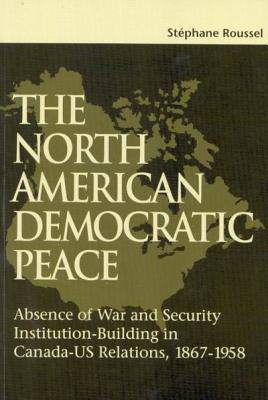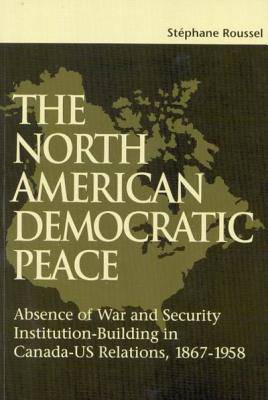
- Afhalen na 1 uur in een winkel met voorraad
- Gratis thuislevering in België vanaf € 30
- Ruim aanbod met 7 miljoen producten
- Afhalen na 1 uur in een winkel met voorraad
- Gratis thuislevering in België vanaf € 30
- Ruim aanbod met 7 miljoen producten
Zoeken
The North American Democratic Peace
Absence of War and Security Institutions Building in Canadians-U.S. Relations (1867-1958) Volume 89
Stéphane Roussel
€ 53,45
+ 106 punten
Uitvoering
Omschrijving
That democratic societies do not fight one another is well documented, but the mechanisms that produce and maintain this situation remain vague. Stéphane Roussel argues that Canadian-U.S. security relations provide a case study that allows us to better understand this process. He shows that the structure of Canada-U.S. relations can be explained by the fact that in their mutual relations both governments have applied the norms and rules they use at the domestic level, such as banishing the use of violence and establishing equal representation. This book describes how the democratic-liberal values and norms shared by both states shaped the evolution of Canadian-American practices and institutions in the realm of security from 1867 to the formal creation of NORAD in 1958. It also challenges the common perception of Canada as a satellite of the U.S. and explains why Canadians and Americans take the peace between them for granted.
Specificaties
Betrokkenen
- Auteur(s):
- Uitgeverij:
Inhoud
- Aantal bladzijden:
- 250
- Taal:
- Engels
- Reeks:
- Reeksnummer:
- nr. 89
Eigenschappen
- Productcode (EAN):
- 9780889119390
- Verschijningsdatum:
- 25/05/2004
- Uitvoering:
- Hardcover
- Formaat:
- Genaaid
- Afmetingen:
- 152 mm x 229 mm
- Gewicht:
- 349 g

Alleen bij Standaard Boekhandel
+ 106 punten op je klantenkaart van Standaard Boekhandel
Beoordelingen
We publiceren alleen reviews die voldoen aan de voorwaarden voor reviews. Bekijk onze voorwaarden voor reviews.











